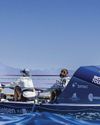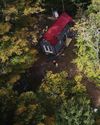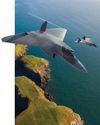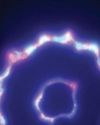
The inkjet printer is one of the most ubiquitous everyday devices found in any home. Beyond text reports, these excel in graphics for printing colorful photos and images. But with hundreds of models in-store and online, finding the right printer can be daunting. That's why we've compared the three best printers we tested in the past year. While their up-front cost might be pricey, they are a worthy investment for their versatile feature sets, superior colors, and high performance marks in our lab tests.
HOW WE TESTED
After connecting each printer to the same WiFi network and performing a print-head alignment, we began our testing. To evaluate each inkjet printer, we looked at three core areas: print speed, color accuracy, and sharpness. Our test prints included a 10-page black-and-white Word document, an image test key (made up of reference colors, a series of fine lines, and two photos), and the cover from a previous issue of Popular Mechanics. We used two 8.5x11-inch paper types: a 24-pound bright-white paper for the text document and a 61-pound matte photo paper for the images.
Measuring print speed was as simple as timing each printer while it processed a 10-page Word document from the time we hit send to the finished job. To assess the quality, we compared text blackness and fill levels around the character edges. We magnified the fine lines on the test key to evaluate each printer's sharpness, looking for jagged lines or edges with light ink filling. Lastly, we assessed color accuracy by using a colorimeter to measure and compare the color values (cyan, yellow, and magenta) from the same point on each printed page to the digital source file's properties.
PICKING UP SPEED
Esta historia es de la edición March - April 2023 de Popular Mechanics US.
Comience su prueba gratuita de Magzter GOLD de 7 días para acceder a miles de historias premium seleccionadas y a más de 9,000 revistas y periódicos.
Ya eres suscriptor ? Conectar
Esta historia es de la edición March - April 2023 de Popular Mechanics US.
Comience su prueba gratuita de Magzter GOLD de 7 días para acceder a miles de historias premium seleccionadas y a más de 9,000 revistas y periódicos.
Ya eres suscriptor? Conectar

ONE OF THE 'GREATEST THREATS' TO THE PACIFIC NORTHWEST ISN'T WHAT YOU THINK.
EXPERTS ARE PREPARING THE REGION AGAINST THE THREAT OF DANGEROUS VOLCANIC MUDFLOWS, KNOWN AS LAHARS, WHICH COULD INUNDATE THE COMMUNITIES SURROUNDING MT. RAINIER IN AS LITTLE AS 30 MINUTES.

THE WORLD'S TOUGHEST ROW
They rowed 3,000 miles across the Atlantic, battling unpredictable weather, chaotic seas, and finicky equipment. But what they discovered gave them profound new insights into the power of the ocean.

HOW TO DIY OFF-GRID SOLAR
SPEND THE TIME UP FRONT AND PLAN IT CAREFULLY TO AVOID DISAPPOINTMENT

Are We on the Verge of an ARMS RACE in SPACE?
RUMORS OF A RUSSIAN SPACE NUKE, ALONG WITH OTHER SATELLITE-TARGETING WEAPONS, HAVE MADE GEOPOLITICAL TENSIONS EXTEND INTO ORBIT.

Fresh Fingerprints on an Ancient Statue
A CLAY FIGURINE HAS SPENT MILLENNIA incomplete, waiting at the bottom of a lake for its long-dead craftsman to finish the Iron Age-era statuette.

Quantum Entanglement in Our Brains
IT HAS LONG BEEN ARGUED THAT THE human brain is similar to a computer. But in reality, that's selling the brain pretty short.

The Tools of Copernicus
WAY BACK IN 1508, WITH ONLY LIMited tools at his disposal, Nicolaus Copernicus developed a celestial model of a heliocentric planetary system, which he described in hist landmark work De revolutionibus orbium coelestium. It was a complete overhaul of our conception of the universe-one that, unfortunately, earned him the ire of the Catholic church for decades after his death-and forever changed the way we look at the stars.

Building a Sixth-Generation Bomber Raptor
THE GLOBAL COMBAT AIR Programme (GCAP)-a project by the U.K., Italy, and Japan to develop a sixth-generation stealth fighter-has been busy at the drawing board reshaping its vision of the future of air warfare. And judging by the new concept model unveiled at this year's Farnborough air show, that future has big triangular wings.

The Electroweak Force of the Early Universe
TODAY, THE UNIVERSE AS WE KNOW IT IS governed by four fundamental forces: the strong nuclear force, the weak nuclear force, electromagnetism, and gravity.

This Ancient Fossil With a Brain and Guts
WE KNOW WHAT FOSSILS LOOK like. For example, typical dinosaur fossils are bones turned to stone and preserved from the passage of time, located, if we're particularly lucky, in large collections that can be reassembled to represent the beast they used to prop up in their entirety.